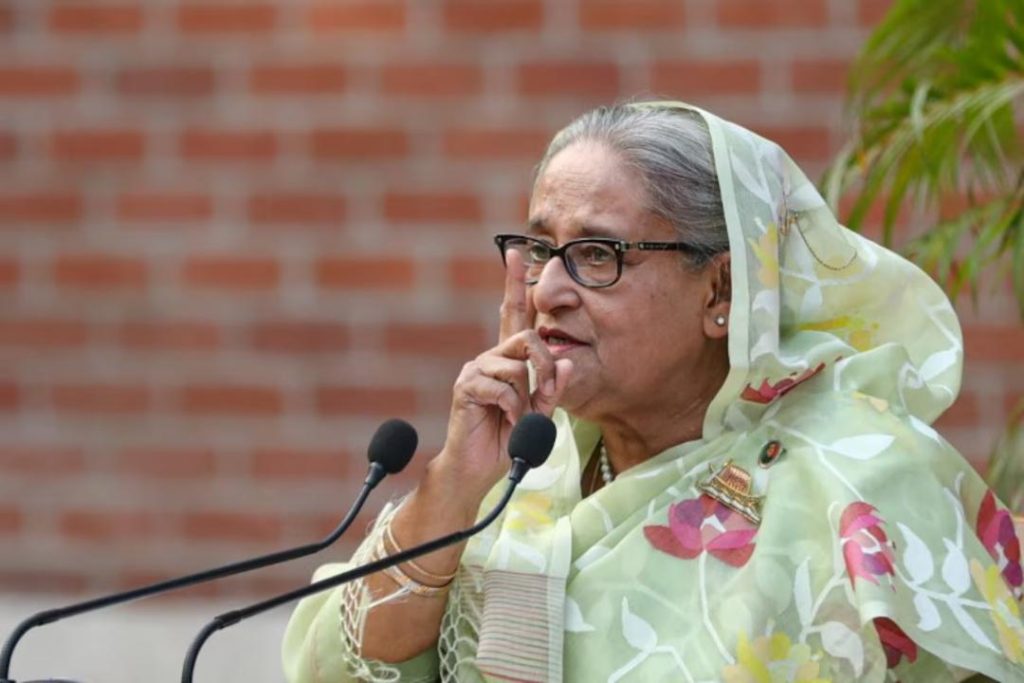
Anti-independence forces trying to erase secular identity: Hasina
In a fiery statement, former Bangladesh Prime Minister Sheikh Hasina has accused anti-independence forces of illegally seizing power and attempting to erase the country’s secular identity. She made these remarks on Pohela Boishakh (Bengali New Year), which marks the beginning of the Bengali calendar.
Hasina, who fled the country in 2024 after her government was toppled, accused the anti-liberation forces of trying to destroy Bengali culture and attacking the nation’s history every time they gained control. Her remarks drew parallels to the 1975 tragedy, in which Sheikh Mujibur Rahman, the founding father of Bangladesh, was assassinated along with most of his family members.
According to reports, Hasina made these comments while addressing a gathering of Bengali intellectuals and cultural personalities on Pohela Boishakh. She said, “Anti-liberation forces…trying to destroy Bengali culture. Whenever they gain control, they attack the nation’s history.”
Hasina’s remarks come at a time when Bangladesh is grappling with the issue of secular identity. The country has a predominantly Muslim population, but it has a rich cultural heritage that is deeply rooted in Bengali traditions and values. The government has been accused of promoting a conservative Islamic agenda, which has led to concerns about the erosion of secular values.
The anti-liberation forces that Hasina referred to are believed to be groups and individuals who opposed Bangladesh’s struggle for independence from Pakistan in 1971. The country gained independence after a bloody nine-month war, but the anti-liberation forces were not willing to accept the new nation and continued to fight against it.
Over the years, these forces have been accused of promoting anti-secular and anti-democratic ideologies, which have led to the erosion of Bangladesh’s secular identity. Hasina’s government had faced criticism for its handling of the issue, with many accusing it of promoting a conservative Islamic agenda and suppressing secular voices.
Hasina’s statement is seen as a warning to the current government, which has been accused of promoting a conservative Islamic agenda. The government has been criticized for its handling of the persecution of minority communities, particularly the Hindu and Christian minorities, who have been targeted by extremist groups.
The 1975 tragedy, in which Sheikh Mujibur Rahman was assassinated, is a significant event in Bangladesh’s history. Mujib, as he was popularly known, was the founding father of Bangladesh and led the country to independence from Pakistan. His assassination led to a period of political instability in the country, which was marked by military rule and political turmoil.
Hasina’s statement is seen as a reference to the 1975 tragedy and the erosion of secular values in Bangladesh. She is believed to be warning the current government against promoting anti-secular and anti-democratic ideologies, which could lead to a similar tragedy.
In conclusion, Hasina’s statement is a powerful warning to the anti-liberation forces and the current government against erasing Bangladesh’s secular identity. The country’s secular identity is deeply rooted in its cultural heritage and values, and any attempt to erase it would be a threat to the country’s very existence.
Source:






